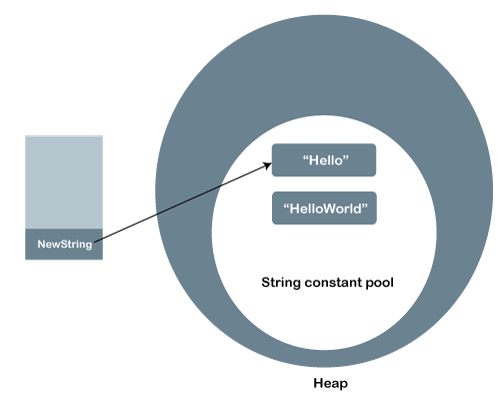What Is Immutable Strings and Exactly How It Works
In the world of shows, recognizing the idea of unalterable strings is critical for developing safe and robust applications. Unalterable strings refer to strings that can not be modified after they are created, making sure data honesty and predictability within the code.
The Fundamentals of Unalterable Strings
Unalterable strings, as a fundamental idea in shows, are character series that can not be changed when they are created. This indicates that once a string is appointed a worth, that worth can not be modified. In languages like Python and Java, strings are unalterable objects, causing numerous effects in regards to memory monitoring and information stability.
Among the essential advantages of immutable strings is that they offer a complacency in data control. Since the material of an unalterable string can not be modified, it makes certain that the initial information continues to be intact, decreasing the threat of unintended modifications throughout program implementation (Why are strings immutable in Java?). This residential property also simplifies debugging processes, as programmers can trust that when a string is specified, its value will not be accidentally modified
When a brand-new string is created based on an existing one, rather than changing the original string, the brand-new value is kept individually. On the whole, comprehending the essentials of unalterable strings is vital for mastering programs concepts and enhancing code performance.
Benefits of Unalterable Strings
Building upon the security and effectiveness benefits of immutable strings, their benefits encompass improving code reliability and simplifying concurrent programming jobs. By being immutable, strings can not be customized after development, which removes the danger of unexpected changes in the information they keep. This fundamental immutability makes certain that once a string is produced, its value stays consistent throughout the program's execution, lowering the chances of pests triggered by unexpected changes.
In addition, unalterable strings contribute to code integrity by making it much easier to reason concerning the state of a program. Given that strings can not be altered, designers can trust that a string will always hold the exact same value, simplifying debugging and upkeep efforts. This predictability brings about more secure and reliable codebases.

Implementation in Programming Languages
Within numerous shows languages, the incorporation of unalterable strings is a fundamental aspect that impacts just how data is taken care of and manipulated within code structures. The application of unalterable strings differs across various programming languages, with each language offering its very own mechanisms to sustain this principle.

In comparison, languages like C and C++ do not have built-in assistance for immutable strings. Programmers in these languages must by hand execute immutability by implementing rules within their code to stop straight alterations to string objects.
Finest Practices for Functioning With Immutable Strings
When taking care of immutable strings in programming languages like Java and Python, sticking to best practices makes certain safe and efficient data adjustment. One of the vital ideal methods is to utilize StringBuilder or StringBuffer instead of directly adjusting strings, particularly when handling substantial concatenation operations. These courses supply mutable choices for string control, aiding to prevent unnecessary memory appropriations and boosting performance.
In addition, when working with delicate information such as passwords or API tricks, it is critical to prevent saving them as simple message in unalterable strings. Using secure storage devices like char selections or specialized libraries for dealing with sensitive information anchor assists reduce safety risks associated with immutable strings.
Real-world Applications and Instances
Checking out practical executions of immutable strings in numerous industries discloses their significant effect on data stability and system reliability. In the medical care sector, immutable strings play an important duty in making sure the safety and confidentiality of patient data. By stopping unapproved alterations to sensitive information such as medical documents and prescriptions, unalterable strings help preserve conformity with rigorous personal privacy policies like HIPAA.
Banks also profit from the unalterable nature of strings to improve the safety of consumer information and transaction records. Immutable strings aid stop scams and unauthorized alterations to economic information, giving a durable protection against cyber hazards and making sure the count on and self-confidence of customers.

Verdict
Finest techniques for working with unalterable strings include preventing direct modifications and using methods that return new string items. Real-world applications of immutable strings include data encryption, caching, and string manipulation tasks.
Unalterable strings refer to strings that can not be changed after they are created, making certain information integrity and predictability within the code. When a brand-new string is developed based on an existing one, instead than modifying the original string, the brand-new worth is find out this here kept separately.In languages like Java and Python, strings are unalterable by default, implying that once a string item is produced, its value can not be changed - Why are strings immutable in Java?. Finest practices for functioning with unalterable strings consist of avoiding direct adjustments and making use of techniques that return new string items. Real-world applications of unalterable strings include information encryption, caching, and string adjustment jobs